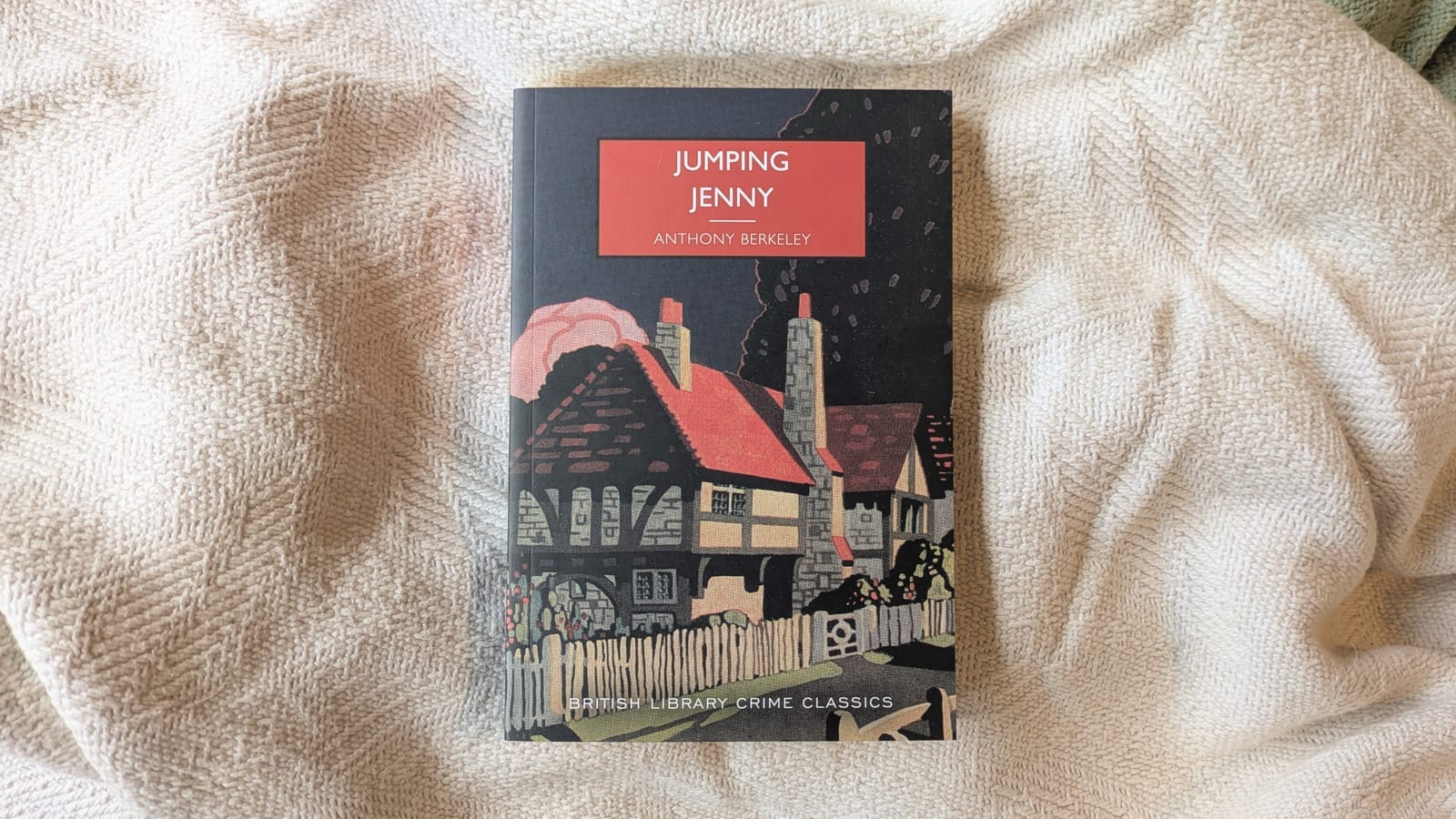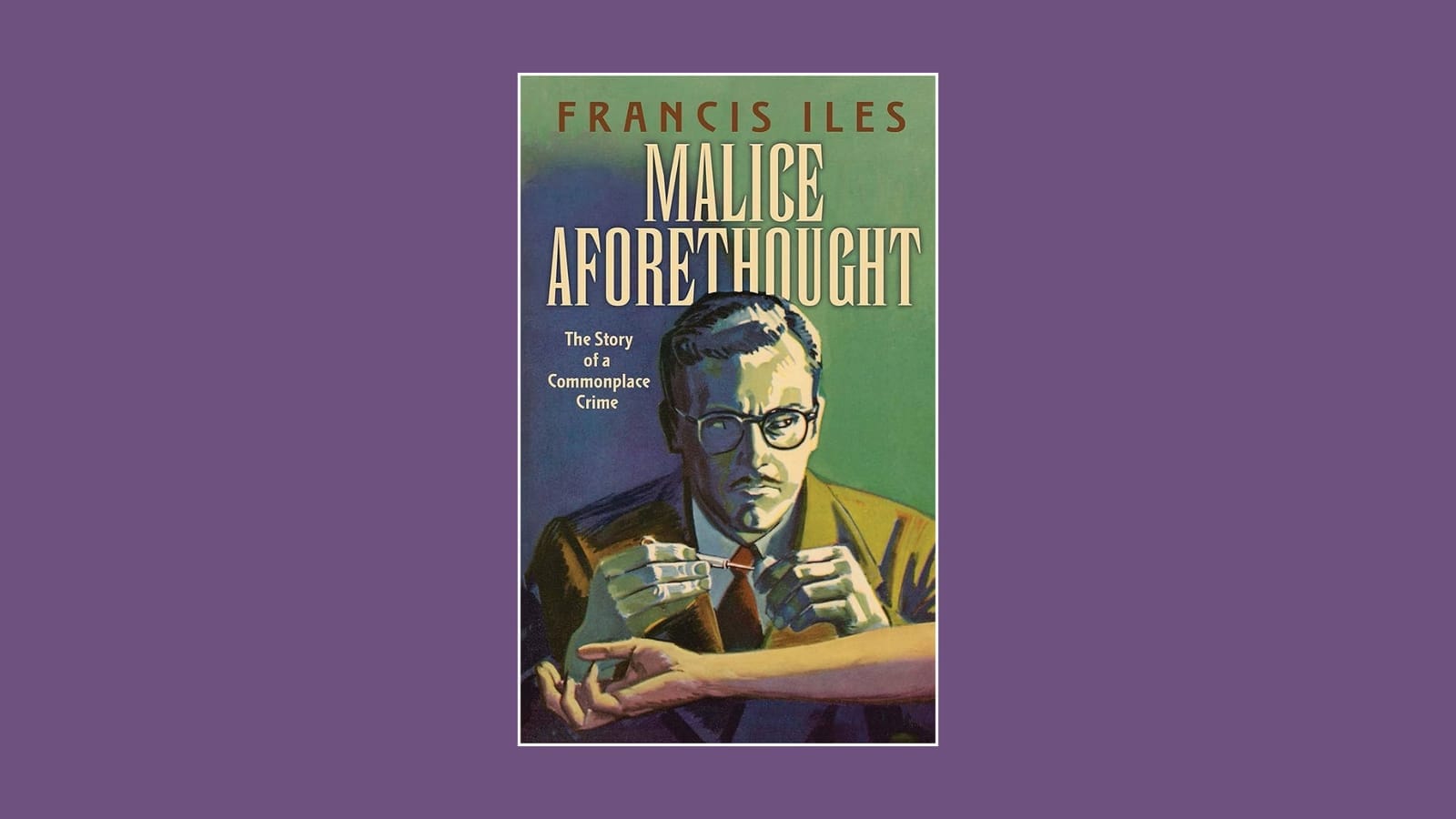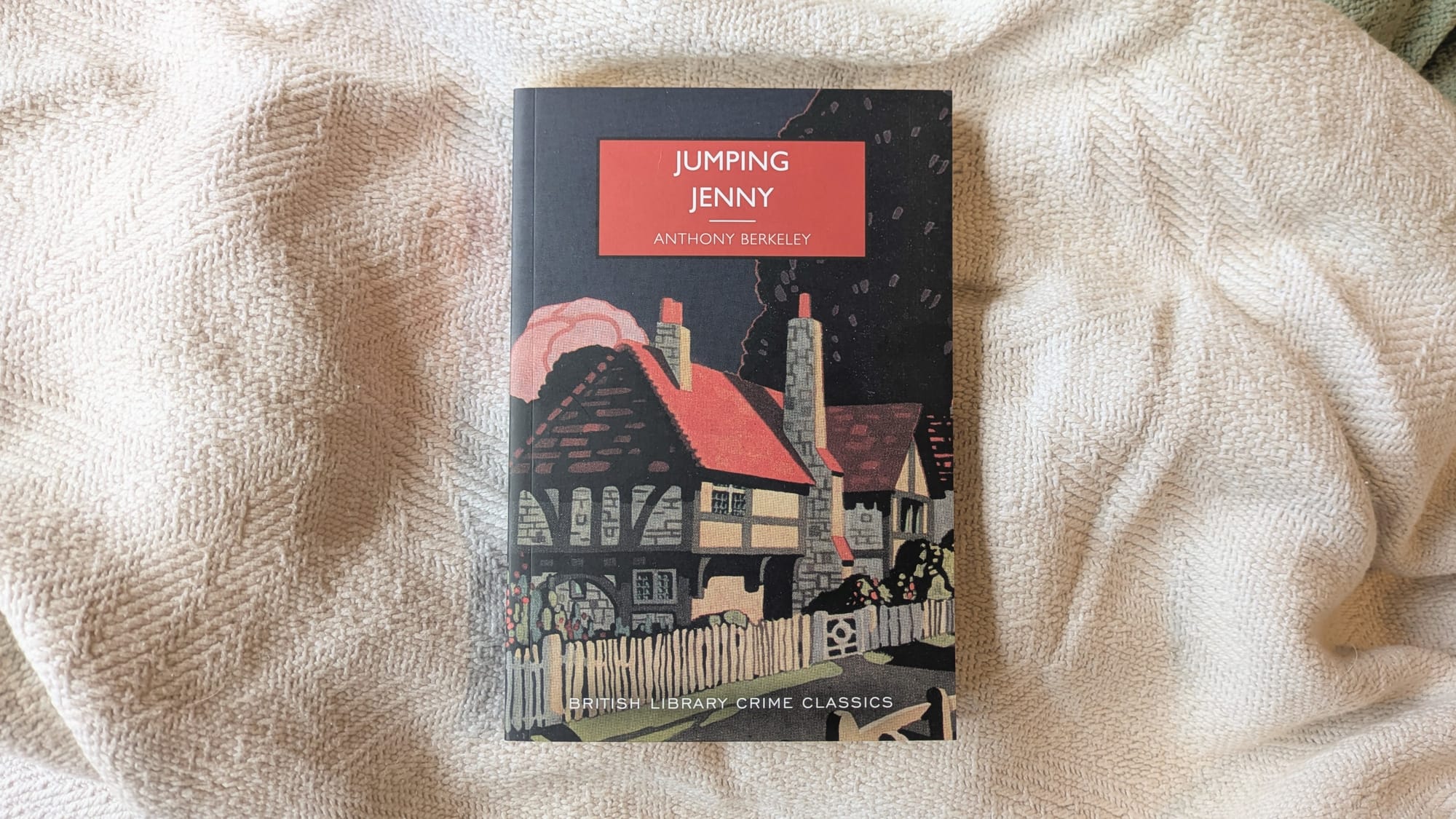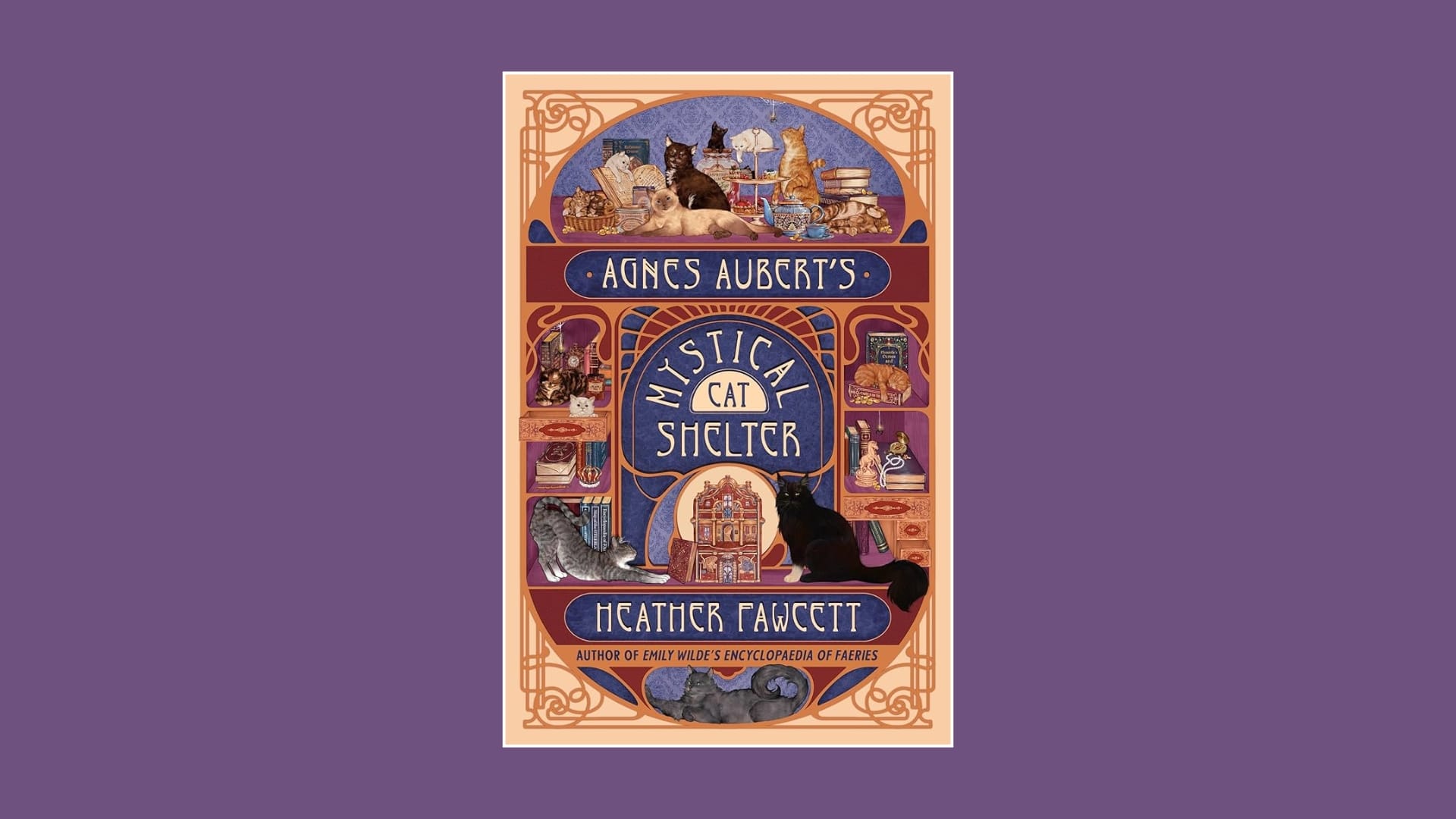Upcoming Mysteries I'm Excited About
Dear listeners,
We're very fortunate to be living in an era of reprints. It is now the norm that publishers big and small are bringing crime fiction from the past back into ready availability. Especially with more ebook and audio editions as well, reading classic detective fiction has never been so accessible.
It's all changed very quickly, too. When I started Shedunnit in 2018, a few republication projects were already underway, but I would often just have to give up on an episode idea because I simply couldn't source the more obscure books I wanted to cover for a reasonable price. And now there's almost too many — I frequently feel that I'm not doing a good job of showing the breadth of what listeners could be enjoying.
Today, I'm going to highlight a few upcoming titles that I'm personally looking forward to and that I thought you might like to check out too. Just to note: no publisher has asked or paid me to do this, nor has any oversight of what I say! I do receive advance preview copies of some titles, which is why I'm able to show you photographs for a couple of those I've selected. If you like the sound of any of these books, considering pre-ordering or requesting at your local library to support the ongoing work of reprinting classic crime fiction. Publication dates and availability will vary depending on where you are in the world; in the UK, at least, these are all coming out in the next three months.
Suspicion by Seichō Matsumoto
I was first introduced to the Japanese writer Seichō Matsumoto when the Shedunnit Book Club read his 1958 novel Points and Lines (aka Tokyo Express) in the summer of 2024. I really enjoyed that "unbreakable alibi' mystery that sees a young detective pore over train timetables and reconstruct ferry journeys to find the true explanation for a supposed double suicide. For the members-only bonus episode I made about it, I interviewed translator Jesse Kirkwood, who was a great guest. I've been keeping an eye on Jesse's work ever since, and when I spotted that he had a new Matsumoto translation out, I clicked "pre-order" ever so fast. I'm looking forward to reading this psychological noir about a supposed femme fatale who maintains her innocence even as the whole world is accusing her of murdering her husband...
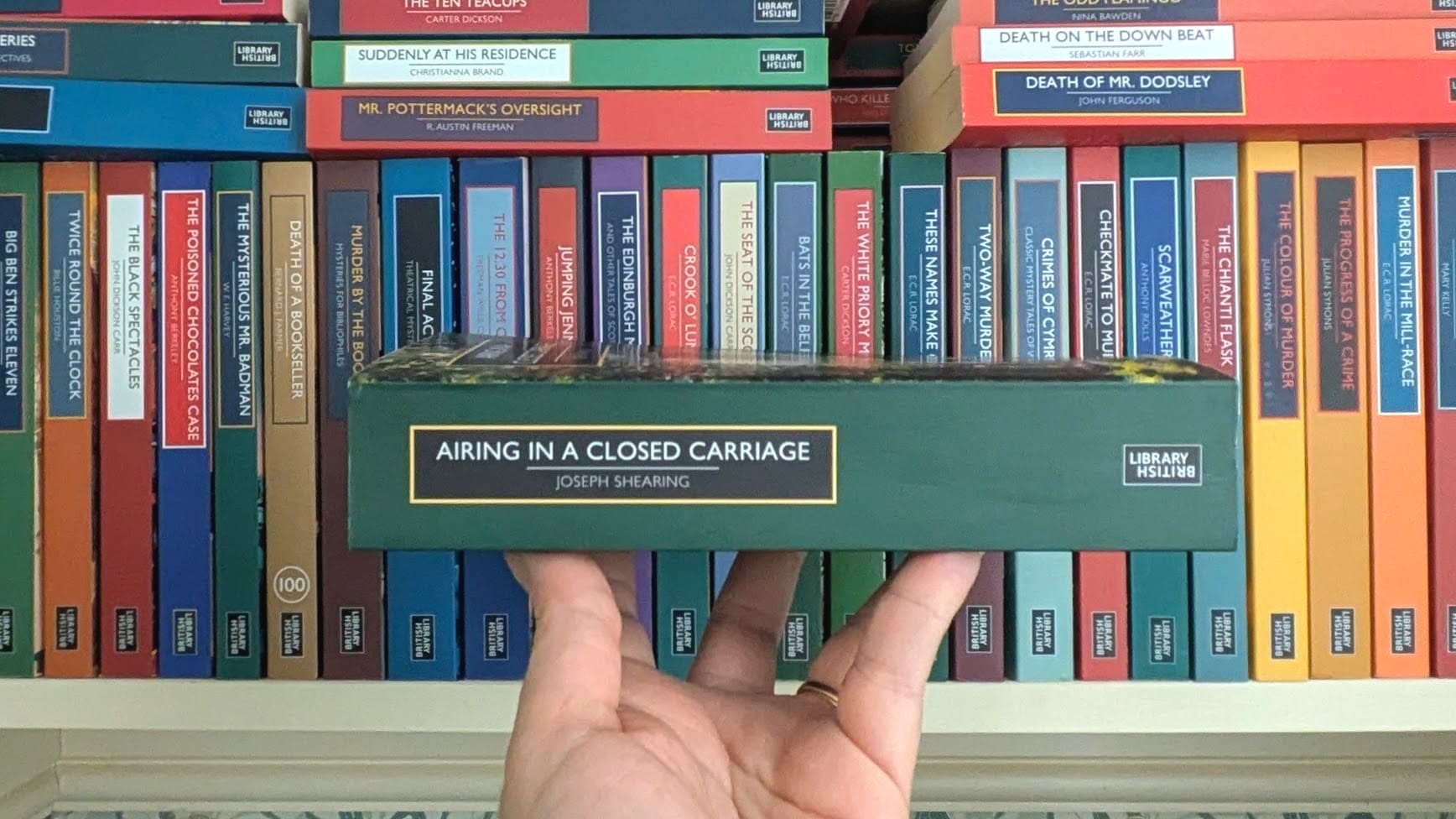
Airing in a Closed Carriage by Joseph Shearing
I think this might be the longest title in the British Library Crime Classics series to date. Look how chunky it is! Joseph Shearing was one of several pennames used by the prolific writer Marjorie Bowen. Much of her work is tinged with horror or supernatural elements, and what I've read so far of her mystery fiction gave me the creeps (in a good way) too. I recorded one of her short stories, "Cambric Tea", for Book Club members in December 2023. This book is based on the real-life Florence Maybrick case, which I've covered on the show before, and I'm intrigued to see what Bowen does with it. Readers of my personal newsletter will know that I'm trying to make time for longer books in 2026, and at nearly 500 pages this should be a good candidate.
February in the Shedunnit Book Club: The podcast's paid membership community has been quite busy this month. We've been reading Curiosity Killed the Cat by Joan Cockin, a 1949 murder mystery set in the Cotswolds, and I've made a two-part bonus episode about it just for members. The Short Story Club has been dissecting "The Adventure of the Bruce-Partington Plans" by Arthur Conan Doyle as part of their ongoing look at the Metropolitan Mysteries anthology and our Re-Readers group is looking at Malice Aforethought by Francis Iles. Members all over the world have also been making plans to get together in person and we've been discussing our reading habits together. If any of that sounds like fun to you, then:
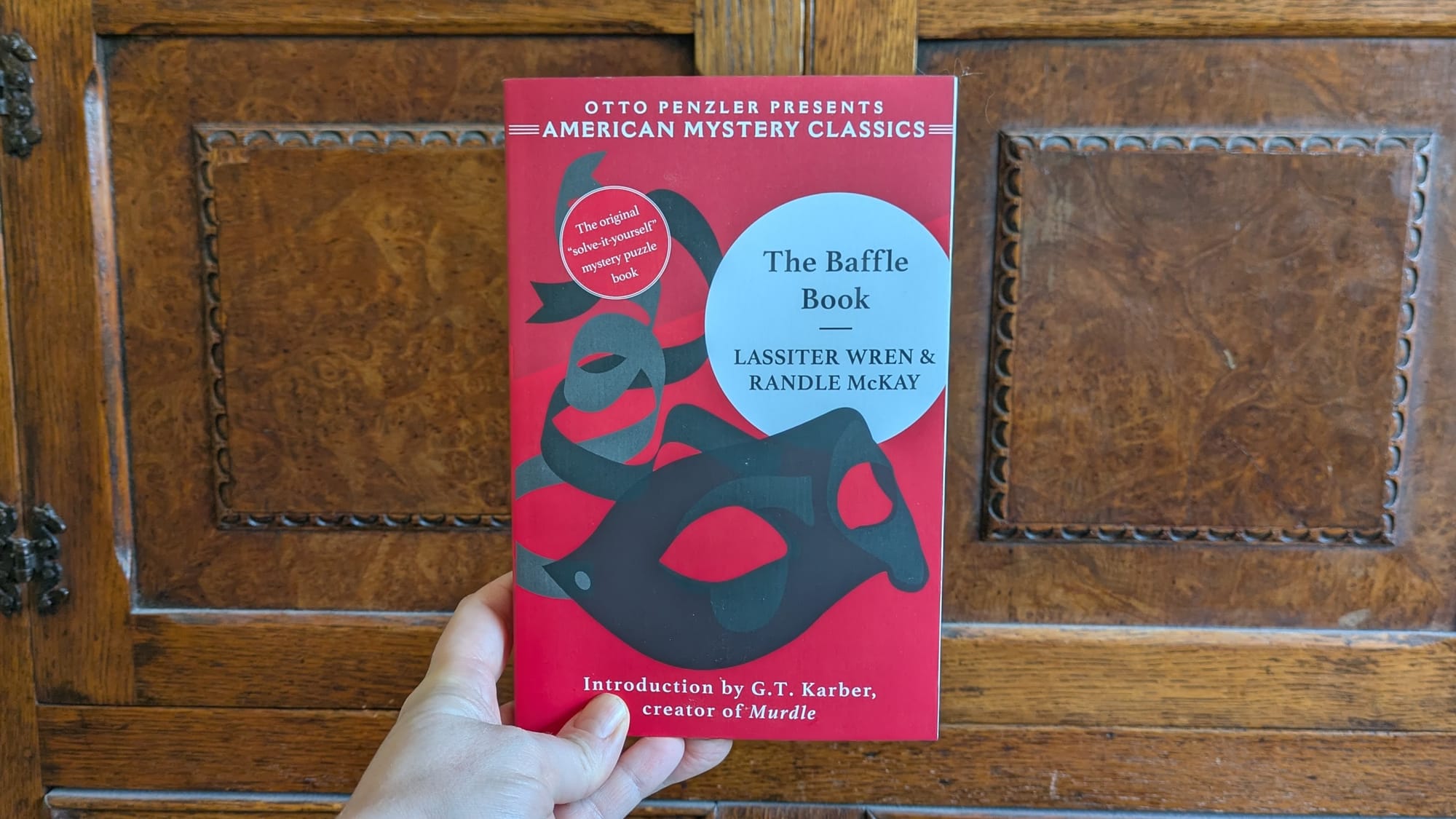
The Baffle Book by Lassiter Wren and Randle McKay
Although I'm a keen reader of golden age puzzle mysteries, I don't tend to enjoy actual puzzles that much. Cryptic crosswords leave me cold and Cain's Jawbone is incomprehensible to me. I do like the sort of riddle that is written like a very short short story, though, and The Baffle Book from 1928 is just that. The answers are in the book and there's also a grading system that awards points at different levels (so you don't get discouraged by not getting something completely right). Very fun.
Why Did She Die? by Joan Coggin
I wrote at the end of last year about my enjoyment of the Lady Lupin series of novels from the 1940s. I find their combination of character, setting, silliness and plot works very well for me — they're good light reading. With this book, Galileo Publishing will have republished all four of Joan Coggin's mystery novels, a true service to those who enjoy her fiction as it was quite hard to come by before.
Are you looking forward to any particular reprints over the next few months? Let us know in the comments.
Until next time,
Caroline
You can listen to every episode of Shedunnit at shedunnitshow.com or on all major podcast apps. Selected episodes are available on BBC Sounds. There are also transcripts of all episodes on the website. The podcast is now newsletter-only — we're not updating social media — so if you'd like to spread the word about the show consider forwarding this email to a mystery-loving friend with the addition of a personal recommendation.

